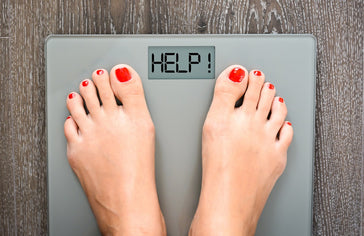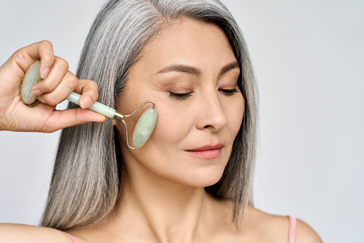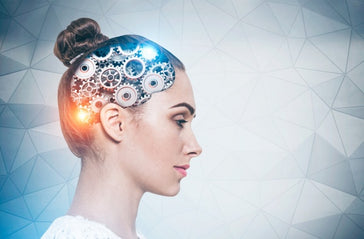Diabetes Management: Stay In Control with Convenient High-Tech Devices
Posted by Mike Miryala on
Sumeet: Are there medications out there for each of these different Diabetes types? Is there a separate medication for Type 1 versus Type 2? How do you treat them? Can you talk a little bit about that?
Edward: Yeah, well our bodies produce insulin all the time. So insulin is the mainstay for treatment of diabetes and there are many types of insulin rapid acting, regular, long acting, and a new generation of insulin is that help out in controlling the blood sugar levels. So the mainstay is insulin and that helps a person have better control of their blood sugar levels on a daily basis.
However, with these new advancements in science and diabetes care, we have many other medications that help out a patient have better control of their glucose levels, their Diabetes, and Sulfonylureas, which are pills that are old by the way, they are on their way out. They helped out by allowing a person to not absorb or better handle the amount of calories and carbohydrates that were ingesting.
Then there was Metformin that actually allowed a person not to absorb the calories, the carbohydrates that were ingested during a meal. And the new technologies or the new medications that are out there actually now help a patient to make better use of their, you know, the carbohydrates that they're getting. They are not absorbing it and in some cases with the newest technologies, they are actually being guided into not feeling hungry, and not feeling the need for carbohydrates.
Sumeet: Got it. So there are these new devices that are there in market, right?
CGM, Continuous Glucose Monitoring. How effective are these and do they not just monitor but do they dispense as well? Are there technologies where they monitor and they dispense?
Edward: Yes, in the past. Okay. Yeah, this is a good point. Yes, once you are diagnosed as a diabetic, you need to monitor your blood sugar levels at all times. Initially, you can do three or four times a day after each meal so you can actually know what levels of sugar get into your body after a certain meal. And once you get to know and get acquainted with how your body reacts, how much sugar levels spike you get and how much insulin you need to have very controlled.
Once you get to a point where you know your system, where you know your body and you know how that particular insulin is helping you control that, you can create a habit of knowing what to eat, how much to eat, how often, in order to keep your blood sugar levels at a level that will be considered normal where you can function and not having those spikes or those drops in blood sugar levels.
Sumeet: So you're saying all these new devices such as CGM are good to have because they can not just track insulin sugar levels, but they also help you improve your lifestyle in general.
Edward: Yeah, yeah. In the older days, you know when insulin was just a mainstay of treatment for Diabetes, they were given in little vials where you could actually draw a certain amount of units with a specific needle and a syringe of a certain unit size and the doctor will determine how many units will you be needing after taking a certain meal, and how many units will you be needing to get your blood sugar at a certain level where you can function normally.
However, technology is here to help us out with bypassing certain things that may be, you know, routine and maybe even bothersome to certain people having to inject themselves, you know, putting the needle and getting the injections subcutaneously every so often. People tend to either forget or get tired of it, even though they know it's important for them to to take good care of that one. You just get tired and you just don't feel like doing it and so the new technology was developed to actually have these devices that contain already a preset amount of insulin inside them and then automatically they released every so often, a certain amount of insulin that would allow you to have that control that in the past you were achieving by injecting yourself with it. Now, it is set automatically. So in a way that releases you from having to take time to go to, you know, the refrigerator, pull the vial, get your dosing, getting it there and for that you will need to stay home.
So these new devices allow you to actually go out there, live more or less normal life in terms of, going out, enjoy your life, enjoy your day and at the same time taking care of your Diabetes.
Sumeet: Got it. Yeah, but I'll tell you one thing, Edward. You have all these technology advancement in the United States, okay? There are people in other parts of the world, they're still going for the vials, they're still storing them in refrigerators and doing it because I know my dad still does it. So before every meal, he takes out his vial and he puts it in there and I remember when he traveled from India once, his, you know, that injection kit, it broke. So we had to go search by all of those things come into play, right?
Edward: Yes, yes.
Sumeet: But yeah, it's a really good advancement that has happened. I mean, that definitely helps automate or let go of some responsibilities, which makes basically everyone more healthy at the end of the day. Oh, you're good.
Edward: And just in addition to this, in the process of getting the vials on that side and now the automatic, automated insulin dispensing devices are in the middle, they were also pens that you can actually carry with you. So that would actually be like the intermediate step between having to stay home and get your insulin home versus being able to carry it with you and then take it to a restaurant. You need it to inject yourself or you need to go to the restroom, you know, kind of excuse yourself. And in fact, stopping, like a nice conversation to say, oh, excuse me, I'll be right back. I'm going to the restroom, inject yourself, coming back. And that may have already kind of interrupted a nice conversation and the topic is forgotten. So the new device would allow you to just keep living your life and getting the treatment.
Sumeet: Got it, got it.
If you missed Sumeet and Edward's discussion on Diabetes Management, you can still watch The CoBionic Talk Show full episode here --> https://www.facebook.com/cobionic/videos/191289390570220





